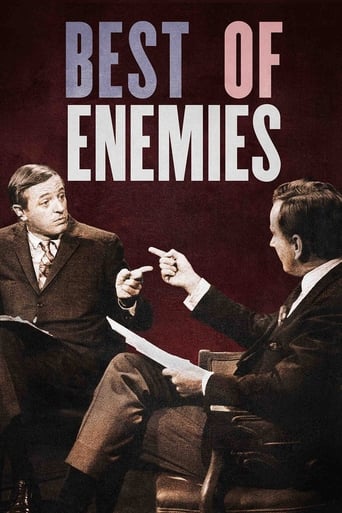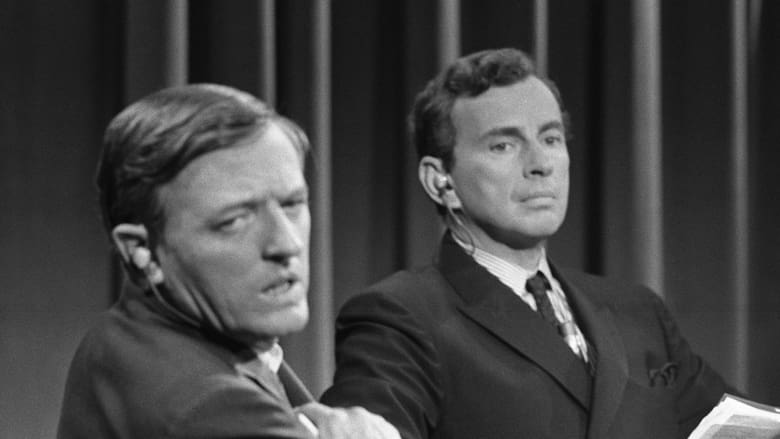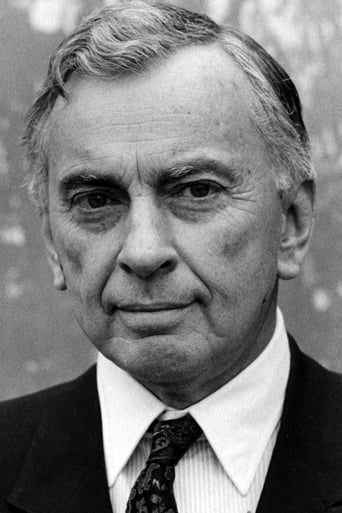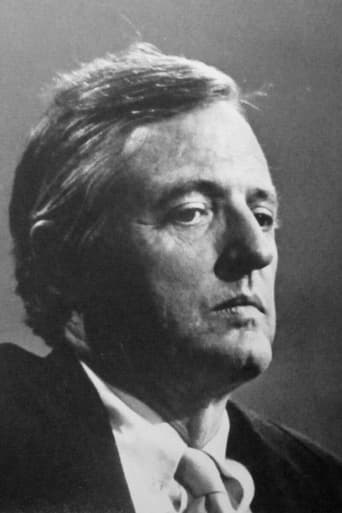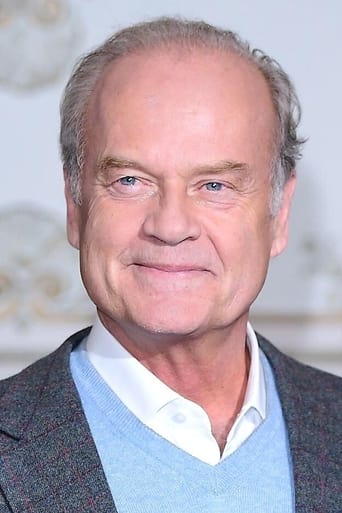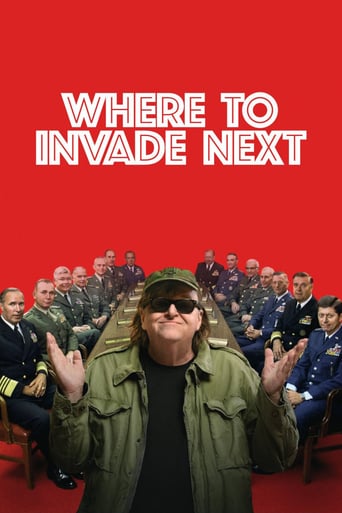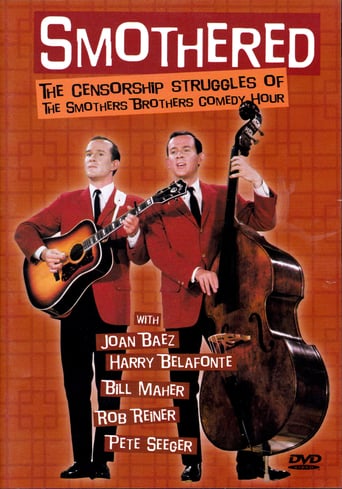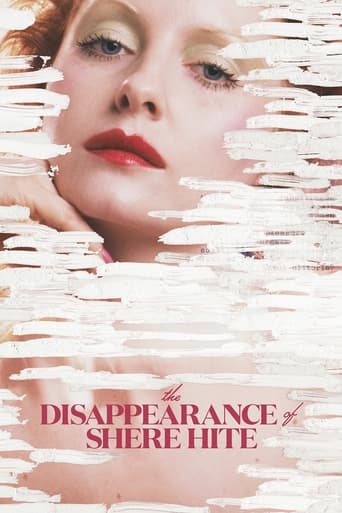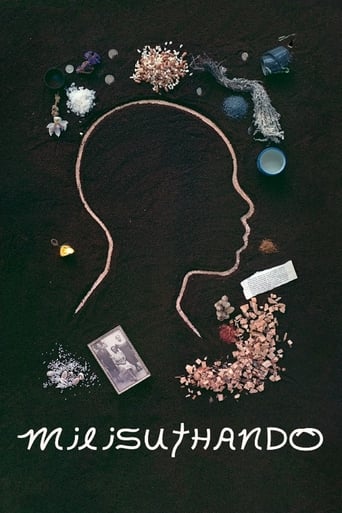Best of Enemies (2015)
A documentary about the legendary series of nationally televised debates in 1968 between two great public intellectuals, the liberal Gore Vidal and the conservative William F. Buckley Jr. Intended as commentary on the issues of their day, these vitriolic and explosive encounters came to define the modern era of public discourse in the media, marking the big bang moment of our contemporary media landscape when spectacle trumped content and argument replaced substance. Best of Enemies delves into the entangled biographies of these two great thinkers, and luxuriates in the language and the theater of their debates, begging the question, "What has television done to the way we discuss politics in our democracy today?"
Watch Trailer
Free Trial Channels
Cast


Similar titles
Reviews
n my opinion it was a great movie with some interesting elements, even though having some plot holes and the ending probably was just too messy and crammed together, but still fun to watch and not your casual movie that is similar to all other ones.
I wanted to like it more than I actually did... But much of the humor totally escaped me and I walked out only mildly impressed.
It is an exhilarating, distressing, funny and profound film, with one of the more memorable film scores in years,
The storyline feels a little thin and moth-eaten in parts but this sequel is plenty of fun.
This documentary put me in mind of Rumble in the Jungle, the documentary about the fight of the same name; like that one, Best of Enemies looks at a staged conflict which had an impact on popular culture. In this case it was a series of televised debates between Vidal and Buckley – two men on polar political extremes. It was interesting to watch this in the run up to the 2016 Presidential Debate between Trump and Clinton (at the time of writing this, the first one will be in 2 days' time) because it hearkens back to a time where the discourse was a little more civil. It is also interesting to note that there is still an edge to their communication, with Vidal using snide insults (as is the liberal way), and Buckley using more direct language in a jokey way (as is the conservative way).Not knowing anything about these debates, the film does a pretty good job of introducing the characters and their tensions, however it doesn't totally deliver in some key ways. Specifically it didn't bring out the period and the event as well as I would have liked; with Rumble in the Jungle you had a real sense of time/place, as well as the cultural importance of the event. With these debates that was not quite there; it didn't show enough of the debates to really explain why they were such an audience grabber. Likewise the film did not really link to its wider impact particularly well – a lot of this plays out under the credits, which felt weird considering that this was the moment of that shift.As an event, and with its large characters, it still is an interesting and engaging film, but it doesn't feel like it captures the event or its cultural impact in as compelling a way as it could have done.
In 1968 ABC was in the doldrums in terms of its political coverage. Lacking sufficient resources to provide wall-to-wall coverage of the conventions of that year, the company had to look for other means to attract viewers.It came up with the idea of staging nightly discussions of the proceedings involving Gore Vidal and William F. Buckley jr, two highly public figures who heartily disliked one another, while representing both extremes of the political spectrum. Vidal was a liberal, a lifelong advocate of free thinking who had scandalized the Establishment ever since the late Forties when his novel THE CITY AND THE PILLAR had appeared, with its open attitude towards homosexuality. Buckley was a right-winger, the forerunner of many public figures today; the founder and editor of the NATIONAL REVIEW, who, while not actively supporting continued racial segregation, nonetheless blamed members of the African American community for the country's economic woes.The rest, as they say, is history. After a series of increasingly fractious nightly discussions, Vidal and Buckley finally came to blows, both literally as physically, during one live broadcast when Vidal denounced Buckley as a "crypto-Nazi," and Buckley responded by calling Vidal a "queer" and threatening to smash his face in. Buckley soon realized what a televisual faux pas he had made, and spent the rest of his life trying to atone for it.Robert Gordon and Morgan Neville's documentary could be approached as an exercise in nostalgia, an evocation of a time on television when pundits actually said what they thought rather than simply expressing anodyne views, and discussion-programs always had that element of danger about them. Other memorable moments like this included an episode of THAT WAS THE WEEK THAT WAS (1963-4), when a member of the audience took exception to the views expressed by journalist Bernard Levin and tried to punch him in the face.On the other hand, the documentary also underlined what happens to people when they come to believe in their own celebrity so much that they pay little or no heed to what they are saying. Vidal and Buckley were both highly intelligent men; but their exchanges seemed somehow pathetic, as they tried to score intellectual points off one another rather than engaging critically with the political issues of that time. They did not appear interested in communicating with viewers, but rather tried to enhance their screen images. If that was indeed the case, then both signally failed in their task; they came across as members of the chattering classes, to be ignored rather than listened to.
Whoa. It's like time travel, into the recent past, but that so clearly laid the path to our current state of drama and politics. The historical framing is helpful and contextual. And of course the cat-fights are fascinating. But the most compelling part is how this relationship between two American Brahmins was putting the foundation in place for the framework we have today, with intractable polarization and he said/he said political commentary. It manages to consist of both sepia-toned nostalgia and contemporary issues that remain hot-buttons today. While others--like queer lifestyles--are clearly accepted in the mainstream. Mesmerizing.
In 1968, eighty percent of American television viewers watched the national presidential nominating conventions. As we watched the Chicago Democratic Convention, we saw what a federal commission later called a "police riot"–a horrific skull-cracking rampage. The decade was a time of economic boom, civil rights struggle, assassinations, riots, disaffected youth, rock 'n' roll, changing sexual mores, escalating protests against an escalating yet undeclared war (the Democratic Party's finger prints were on the war more than the Republicans—hence the demonstrations in Chicago), new welfare programs, and dazzling technological changes. (The national conventions were broadcast, for the first time, entirely in color in 1968.) Even though I watched the conventions, I didn't watch much of ABC, which only covered the conventions during prime time, while NBC and CBS covered the conventions from gavel-to-gavel—unheard of today except maybe on C-SPAN. So I missed seeing the subject of this documentary, the epic ten-round debate between Gore Vidal and William F. Buckley, Jr., but I sure heard about it. After the round in which Vidal called Buckley a "crypto-Nazi" and Buckley called Vidal a "queer" and added "I'll sock you in the god-damned face," it was water-cooler conversation everywhere in America the next day. Even those like me who had not seen it, understood how shocking it was. According to this documentary, the network suits turned to each other after it happened and asked, "Can they say that on television?" And someone told them, "They just did—live." Maybe if ABC had not been the lowest-rated commercial network, it might not have been so eager to have Vidal and Buckley comment/debate at the conventions. That, of course, assumes that ABC realized that they would not do much commentary and that there would be no rules in their debate. The two men had a great deal in common in terms of background and intellect (both were masterful word-smiths), but they hated each other politically and personally with a burning passion that makes the title of this film so apt.Their "debate" got personal fast as they ripped into each other mercilessly. It was only surprising that they lasted so long before the sharpest knives came out. At the heart was the battle between the liberal and conservative world views that each man represented. Vidal was an outspoken advocate of libertine-ism and central planning, the almost contradictory shibboleths of modern liberalism, and also a successful writer who wrote a number of good novels, plays and screenplays, but his most recent and provocative novel, in 1968, was "Myra Breckinridge," a satirical romp about trans-sexuality (very progressive, you might think) and also a celebration of homosexual rape (Yikes! You might think), but it was a different time, and both sexual liberation and rape were lumped together, according to Vidal's champions, as signs of forward thinking and, according to critics, as signs of moral decay. Buckley was the editor of "National Review", a conservative magazine that still thrives despite his passing. Both men were scions of social upstarts who became successful, Buckley's family in oil and Vidal's family in politics. Both had good educations, although, Vidal had not gone to college. They both spoke with patrician accents that, as one of the film's commentators, linguist John McWhorter, opines, would seem pompous and uncaring to listeners today. (Indeed, Kelsey Grammar, of "Frazier" fame, voices the writings of Buckley and John Lithgow, of "Third Rock from the Sun", voices those of Vidal in this film.) Vidal won the "debate" based purely on the fact that, though each man strove to get under the other's skin, it was Buckley who finally lost his cool. What got to him was the odious conceit that conservatives may be linked to fascism. Buckley had heard this slur his whole career, and was visibly infuriated by it, but pushing that button would have been a lower trick than it was if Vidal had not genuinely believed that there was truth in it. (The persistence of this myth explains the peculiar surprise of one of Buckley's liberal biographers when he learned that Buckley, otherwise unsurprisingly, had once fired a Nazi that he found to be part of his magazine's sales force.) Buckley was ashamed of his outburst in the debate for the rest of his life. Vidal gloated over it for the rest of his. I wonder if one is sadder than the other.The filmmakers, Robert Gordon and Morgan Neville, make some attempt to be fair to both sides but are, perhaps, unfair to both and to history as well. For example, they present a recounting of Vidal's frequent viewing of the debate tapes in his old age while showing us a scene from the movie "Sunset Boulevard" (about a forgotten movie star who pathetically watches herself in old movies night after night). If there is a flaw in the conclusion drawn for us by the film—that the vitriol of the Buckley-Vidal debate was not only a harbinger of, but may even have caused today's cable news and internet cat-fighting—it might be that the film overly sentimentalizes the homogeneous, middle-of-the-road political viewpoint shared by most network newsreaders and commentators during the sixties. This artificial sameness presided over and callously ignored a turbulent, ongoing cultural and political split in the country as if ignoring it—or at best reporting only the ripples on the surface that could not be ignored—would make it go away. For all any of us knew, we might have blown off some of our more destructive steam if there had been alternative media back then. The confrontation between Vidal and Buckley on national television in 1968 was set against what was going on in the streets at that time. They were expressing the frustrations of adherents of both of their ideologies, frustrations that were just under the surface but not being articulated on the nightly news.

